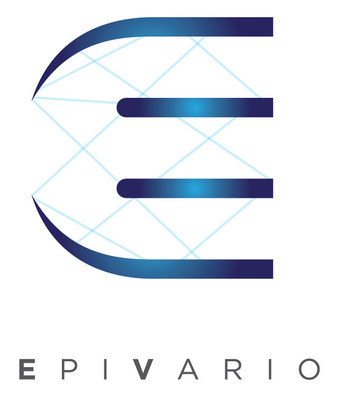Subjects: FNC, TRI
EpiVario Awarded NIH Grant to Advance Research in Alcohol Use Disorder (AUD)
Company to receive over $250,000 in research funding to address condition affecting more than 14 million U.S. adults
PHILADELPHIA, Sept. 13, 2022 /PRNewswire/ -- EpiVario, Inc., a biotech company developing novel therapeutics for memory-related psychiatric disorders, today announced it has been awarded a grant of nearly $260,000 from the National Institute on Alcohol Abuse and Alcoholism (NIAAA) to advance research on its proprietary small molecule inhibitors designed to reduce alcohol craving responses and help people with alcohol use disorder prevent relapse.
Alcohol Use Disorder (AUD) is characterized by an impaired ability to stop or control alcohol use despite clinically significant impairment, distress, or other adverse consequences. As one of the most common substance use disorders, it costs the U.S. healthcare system roughly $28 billion annually, and contributes to over 95,000 deaths each year. Moreover, alcohol use and misuse are thought to contribute to over 200 related diseases and health conditions globally, including cardiovascular disease, cancer, liver cirrhosis, and injuries1.
The current standard of care for AUD is a combination of detoxification, psychotherapy, and community support programs, such as Alcoholics Anonymous. The limited number of pharmacotherapeutics available to supplement such treatments are not uniformly effective and are hampered by side effects, creating an urgent need for more effective treatments.
EpiVario has developed an epigenetic approach to AUD that controls neuronal plasticity, inhibiting alcohol-related memory processes, which are known to play a large role in driving the disorder. The metabolic enzyme ACSS2 generates acetyl-CoA, a key cofactor for patterns of histone acetylation important for long-term memory2. EpiVario's co-founders, Drs. Shelley Berger and Philipp Mews, discovered that ACSS2 plays a critical role in alcohol-related learning by coordinating alcohol-induced histone acetylation and gene expression in the hippocampus, which converts alcohol-derived acetate to acetyl-CoA3. This supports the hypothesis that alcohol may exert its addictive properties via ACSS2-dependent histone acetylation. This novel gene regulatory mechanism presents an attractive therapeutic strategy via pharmacological inhibition of ACSS2 to interfere with alcohol-related learning that drives AUD.
EpiVario's research will continue to evaluate the company's existing collection of small molecule inhibitors of ACSS2 for safety and efficacy in vivo, validate ACSS2 as a therapeutic target, and establish ACSS2 inhibition as a potential novel therapeutic strategy to treat AUD.
"This award marks a significant milestone for both our company and the millions affected by alcohol addiction worldwide," said Thomas Kim, President & CEO of EpiVario. "We are one step closer to addressing the urgent need for a reliable and safe AUD pharmacotherapy with minimal side effects. We are excited to deploy this funding to advance our preclinical research and aspire to begin human trials by the first half of 2024."
Dr. Howard Becker, Professor at the Medical University of South Carolina (MUSC), is widely recognized for his development of relevant animal models of AUD and their use in research on mechanisms and strategies for treating excessive, harmful drinking. In collaboration with MUSC, Dr. Becker was selected as Principal Investigator for EpiVario's six-month study.
"I am honored to work with EpiVario on this truly innovative science," said Dr. Becker. "I have previously collaborated with EpiVario and its cofounder, Dr. Mews, and I am now most happy to collaboratively work on advancing EpiVario's drug development program that embraces a therapeutic strategy which is unlike any other AUD treatment available. It is exciting to take an active role in bringing this potentially life-changing therapy to market."
The isolation and stress of the pandemic has only worsened alcohol addiction over the past few years, and it's estimated that binge drinking increased by 21% since 20204. Alcohol consumption changes due to COVID-19 are expected to cause 100 additional deaths and 2,800 additional cases of liver failure by 2023. While the number of affected people continues to rise, only approximately 7% of people who had AUD in the past year received any treatment.
EpiVario is a biotech company developing novel therapeutics to address a wide range of memory-related psychiatric disorders, including PTSD, Alzheimer's, and alcohol and drug addiction. EpiVario's strategy is to treat these psychiatric disorders at the source of the disease ? the intrusive memories that often cause relapse. These memories are weakened via epigenetic regulation through the target enzyme acetyl-coA synthetase 2 (ACSS2), which regulates consolidation of fear and drug-craving memories. EpiVario's co-founders discovered that ACSS2 is a key metabolic enzyme that works directly within the nucleus of neurons to turn genes on when new memories are being established, and also when memories are recalled and then reconsolidated. For more information visit http://www.epivario.com.
Media Contact:
Alyson Kuritz
[email protected]
(908) 892-7149
- Burnette, E. M. et al. Novel Agents for the Pharmacological Treatment of Alcohol Use Disorder. Drugs 82, 251?274 (2022).
- Mews, P. et al. Acetyl-CoA synthetase regulates histone acetylation and hippocampal memory. Nature 546, 381?386 (2017).
- Mews, P. et al. Alcohol metabolism contributes to brain histone acetylation. Nature (2019) doi:10.1038/s41586-019-1700-7.
- The effect of COVID-19 on alcohol consumption, and policy responses to prevent harmful alcohol consumption. https://www.oecd.org/coronavirus/policy-responses/the-effect-of-covid-19-on-alcohol-consumption-and-policy-responses-to-prevent-harmful-alcohol-consumption-53890024/.
SOURCE EpiVario Inc.
These press releases may also interest you
|
News published on and distributed by:




